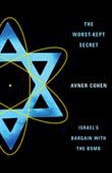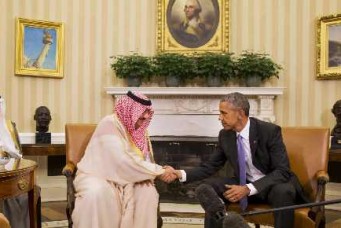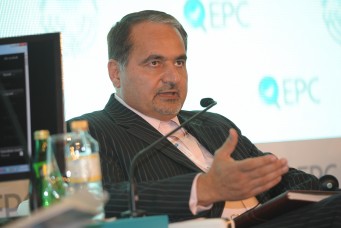The Worst-Kept Secret
The dangerous downside to Israeli nuclear transparency.
The Worst-Kept Secret: Israel’s Bargain with the Bomb. By Avner Cohen. Columbia University Press, 2010. 416 pp.
Avner Cohen is consistent in an era of double standards and policy contradictions. In The Worst-Kept Secret: Israel’s Bargain with the Bomb, he builds on his well-established works and commitment to the transparency of Israel’s nuclear program. His arguments are often intriguing, and in some ways both philosophical and anthropological. It is correct that to have complete international and domestic accountability and effective control of nuclear programs, a significant level of transparency and a separation of powers between the nuclear regulators, the military top brass, and the political leadership is required. Cohen presents his case well.
Questionable, nonetheless, is Cohen’s basic premise, which is that Israel would be better off with a declared nuclear weapons program than its present opaque, but not ambiguous, status. This is simply not true if the object is to enhance Israel’s security. Cohen also argues that Israel should openly declare its nuclear weapons program in order to improve its international standing as a state that respects the norms governing the acquisition of nuclear weapons. It is very doubtful that this would in fact enhance Israel’s political status because it would be upgrading its nuclear weapon posture more aggressively rather than contributing to nuclear disarmament. It is more likely that there would be severe repercussions, both regionally and internationally.
Cohen argues that having a transparent nuclear weapons program would enable Israel to overcome or counterbalance diplomatic problems it faces as the result of the stalemate in the Arab–Israeli peace process. There is no empirical or even anecdotal evidence for this. On the contrary, it would more probably reconfirm that Israel is pursuing renegade policies, inconsistent with international efforts to diminish the role of nuclear weapons.
Israel must seriously consider the ramifications of changing its posture from opaque and unambiguous to declared. It is difficult to make predictions, but regional states will be forced to react to the changing security paradigm and resulting political pressures, and react they will. Certainly, efforts to curtail nuclear proliferation in the Middle East—not to mention Iran—will become more complicated and difficult.
It is difficult to accept Cohen’s argument for a change in Israel’s nuclear posture. It is rather disappointing that someone arguing about enhanced security would ignore the fact that the asymmetry in nuclear programs and non-proliferation obligations has been a driving force for proliferation, thus determinately affecting international and regional security in the Middle East, including Israel. A nuclear weapons declaration by Israel would only fuel further such concerns, threatening the security of all states of the region.
Cohen’s call for transparency is not misdirected, but it lacks context and comes at a bad time. Transparency would be a useful and imperative part of any steps taken by Israel to join the nuclear nonproliferation treaty as a nonnuclear-weapon state, like South Africa; or as part of the creation of a zone free of nuclear weapons in the Middle East that would include all the Arab countries, along with Israel and Iran. For transparency to provide enhanced security for all, including Israel, it should be coupled with a clear commitment to nuclear disarmament and the establishment of a nuclear free zone, with practical steps by Israel in that direction and a finite timeline for achieving that goal.
Nabil Fahmy is the founding dean of the School of Global Affairs and Public Policy at the American University in Cairo. A career diplomat, he served as Egypt’s ambassador to the United States from 1999 to 2008, and as envoy to Japan between 1997 and 1999. He fulfilled many other roles in his country’s foreign service, as a member of Egypt’s mission to the United Nations in New York, and as a senior government advisor on nuclear disarmament. He has specialized in multilateral affairs, conflict resolution, and disarmament and has published frequently on these topics. He serves as the non-resident chair of the Middle East Nonproliferation Project of the James Martin Center for Nonproliferation Studies.




